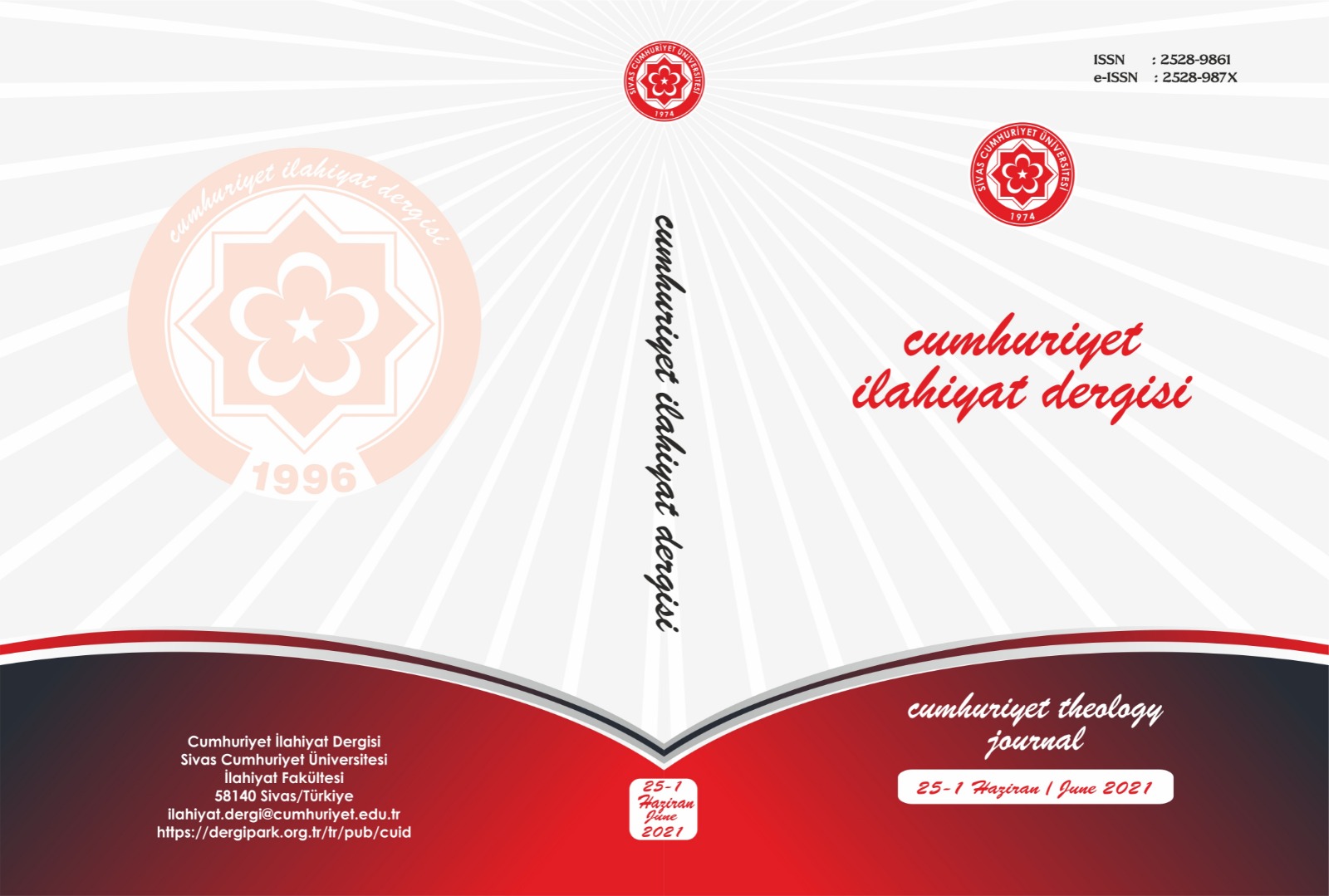Tefsirlerde Müşriklerin İnkâr Sebebi Olarak Şirki Allah’ın Meşietine Bağlama Sorunsalı
The Problem of Connecting Polytheism to Allah’s Wish as the Reason for Denial of the Polytheists in Tafsīrs
Author(s): Muhammed ErsözSubject(s): Theology and Religion, Islam studies
Published by: Cumhuriyet Üniversitesi İlahyat Fakültesi
Keywords: Tafsīr; Qurʾān; Wish; Denial; Belief;
Summary/Abstract: In the Qurʾān, it is mentioned that those who disbelieve insist on not believing by putting forward various excuses. One of them is that deniers attribute polytheism to Allah’s wish. When those who disbelieve are asked why they do not believe, they argue that they cannot deny unless Allah wills. On the other hand, expressions in line with the words spoken by the polytheists in the Qurʾān are also attributed to Allah. Such a paradoxical appearance between the verses requires a detailed examination of the subject. In this study, the reasons for using these expressions by the deniers and the historical contexts of the verses will be examined. In addition, we will talk about the discussion of whether the expressions that bind polytheism to the wish of God are absolutely correct, since the subject is related to the wish. Because the interpretation of the verses varies according to both views. In addition to this, whether the deniers are sincere in these words is an element that affects the interpretation. Ahl al-Sunna scholars argue that this proposition is absolutely correct and that the deniers say this sentence with a mocking attitude. On the other hand, Muʿtazilī scholars are of the opinion that the proposition is absolutely wrong and that the deniers say this word with conviction. In addition, while Muʿtazilī scholars think that the nature of the Allah’s wish in both verses is different; Ahl Sunna scholars think that both are the same. Although it seems at first glance that the disbelievers attribute their denial to the legacy of Allah is an attitude that mocks them and believes that Allah is pleased with them, in reality, this is because they deny fate and turn to coercion and do not believe in prophethood and the Hereafter. Because, saying “If Allah willed, we would not associate” is based on the conviction that Allah gave consent to this belief they inherited from their ancestors and left them in accordance with their current beliefs. Devotion to ancestors is not necessarily a bad thing. However, if loyalty to ancestors is through prophethood, it leads to a true faith and ensures that faith is transferred to the next generations in a healthy way. On the other hand, if traditional practices in the name of religion turn into a practice that is against the spirit of the religion after a while, devotion to ancestors becomes an element that leads to denial. The fact that their ancestors lived a very prosperous life in the world even though they also had this belief reveals that they did not believe in the hereafter. Because, according to their opinion, if their ancestors had not been on the right path, God should have punished them in this world. Another reason why they attribute their denial to the legacy of Allah is their lack of belief in prophethood. Because, according to them, prophethood does not have an effect, nor it is necessary, for their faith, which depends only on the legacy of Allah. The most important factor that determines whether the propositions in the verses we examined are correct is the context of the sentence and the intention of the people using the proposition. In other words, the meaning and value of attributing denial to Allah’s wish differs according to the addressee. Because one can mean the falsehood with a true word. The same expression used in different contexts used for this may also be false, due to the difference in context and purpose. As pointed out in verse 148 of Surat al-An’am, a person who has the ability and power to believe, abandon polytheism and rebellion, ignoring this opportunity and power given by Allah and implying that he is pleased with a deed that Allah is not pleased with like idolatry. “If Allah willed, we would not associate idolatry” is a false sentence and false claim that is expressed in the verse. On the other hand, as pointed out in verse 107 of the Surat al-An’am and verse 99 of Surat Yunus, our Prophet who is desperate in the current situation and who has an extreme sense of responsibility because they do not believe, consoled our Prophet that his only duty was to convey the truth to the deniers with the statement “If Allah so willed, they would not have converted to Islam” and “If Allah willed, all those on earth would have believed,” indicating that he allowed them to practice idolatry as a requirement of the test and that he did not force people to believe, in order to state that he is not a guardian and that he should not force them to believe. Therefore, each different situation points to a different dimension of the truth about God’s legitimacy.
Journal: Cumhuriyet İlahiyat Dergisi
- Issue Year: 25/2021
- Issue No: 1
- Page Range: 93-113
- Page Count: 21
- Language: Turkish

